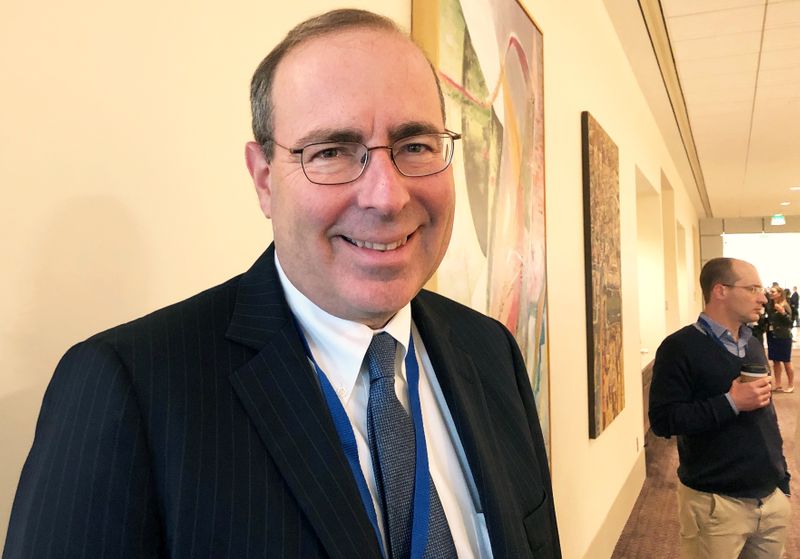WASHINGTON (Reuters) – A likely slow U.S. economic recovery from the coronavirus crisis may be hampered by workers’ inability to return to the job and the impact of social distancing and other new health rules on business productivity, Richmond Federal Reserve President Thomas Barkin said on Friday.
“We need to be working on the economy’s recovery rate” after the crisis, Barkin said, noting that efforts to restart investment, retrain workers, and expand child and elder care may be needed to get people back to work.
“Our response to this crisis is to close schools and day care. We are also threatening traditional forms of elder care,” Barkin told the Maryland Chamber of Commerce in a webcast. “Dual-career couples and single parents face daunting challenges. Without more support many risk leaving the work force.”
“The great number of waiters and retail clerks dislocated by the pandemic may struggle to move into new careers … Businesses are already refocusing on resilience, perhaps at the expense of efficiency … Increased debt loads, reduced bank lending capacity and diminished confidence has to have a meaningful impact on investment levels.”
The Fed this week restated a pledge to keep interest rates low and continue other emergency programs, offering trillions of dollars in credit across the economy, as long as needed to keep the economy stable while the country fights the pandemic.
But policymakers also have begun cautioning that, even after the immediate health crisis eases, the economic recovery will be slow.
Barkin said, for example, he expected the U.S. unemployment rate to not just spike perhaps as high as 20% in the coming weeks, but to likely remain in double digits through the summer.
Even if economic growth resumes later this year, he said the more systemic damage left behind may need further government attention to restore consumer confidence or encourage investment.
Over time, “we will return to somewhat normal operations – at a gradual pace,” he said. But “I worry about the landing spot – how strong the economy will be at the end of this.”
(Reporting by Howard Schneider; Editing by Paul Simao)






















